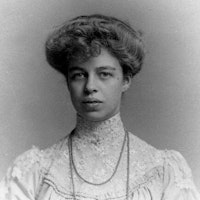We will have to want peace, work for it, suffer for it, and, above all, live it in our daily lives.
We will have to want peace, work for it, suffer for it, and, above all, live it in our daily lives.
Eleanor Roosevelt

Live Peace
Topic: Global Peace & Development
We will have to want peace, work for it, suffer for it, and, above all, live it in our daily lives. Peace, like freedom, is not a gift bestowed upon us once and for all; it is a living thing that must be nurtured daily with understanding, tolerance, and goodwill. It requires constant effort, vigilance, and a willingness to set aside pride for the sake of the common good.
Anna Eleanor Roosevelt, born on October 11, 1884, and passing away on November 7, 1962, was a significant American political figure, diplomat, and activist. Her service as the First Lady of the United States from March 1933 to April 1945, alongside her husband President Franklin D. Roosevelt during his four terms in office, marked her as the longest-serving First Lady of the United States. Her tenure as First Lady was just the beginning of a long and impactful career in public service, showcasing her commitment to various social and political causes.
Following her role as First Lady, Roosevelt transitioned into a diplomatic position, serving as the United States Delegate to the United Nations General Assembly from 1945 to 1952. This role significantly contributed to her reputation as a dedicated advocate for human rights. Her work in promoting human rights on an international stage was groundbreaking, bringing attention to issues that were often overlooked, and working towards creating a world where human rights were recognized and protected.
Eleanor Roosevelt's legacy is marked by her dedication to human rights, her service to her country, and her continuous advocacy for the marginalized and oppressed. Her efforts in the realm of human rights were acknowledged by President Harry S. Truman, who honored her with the title "First Lady of the World." This title not only pays tribute to her achievements in the realm of human rights but also recognizes the lasting impact she had on both national and international platforms. Through her life’s work, Roosevelt set a lasting standard for public service and remains a notable figure in American history.
Roosevelt, Eleanor. Tomorrow Is Now. Harper & Row, 1963, p. 198.

Eleanor Roosevelt
Theme: Peace

About This Eleanor Roosevelt Quotation [Commentary]
Eleanor Roosevelt states plainly, “We will have to want peace, work for it, suffer for it, and, above all, live it in our daily lives.” Her deliberate order—wanting, working, suffering, and living—shows peace as a discipline shaped by intention and consistent action. By ending with “live it,” she makes clear that peace must be evident in daily conduct, guiding how people relate to one another in both public and private life. This is not a task for leaders alone but a shared responsibility.
She adds that peace, like freedom, “is not a gift bestowed upon us once and for all; it is a living thing” requiring steady care. To “nurture it daily with understanding, tolerance, and goodwill” means actively choosing attitudes and actions that prevent bitterness from taking root. Her call for “constant effort, vigilance, and a willingness to set aside pride for the sake of the common good” invites people of all backgrounds to place shared well-being above personal or political advantage.
Her words acknowledge that conflict is inevitable, yet it can be addressed without abandoning the work of peace. “Work for it” and “suffer for it” name the reality that building peace may involve sacrifice and restraint. Yet to “live it in our daily lives” affirms that peace can grow wherever people act with patience, humility, and a commitment to the common good. In this way, her message joins principle with practice, offering a clear path from division toward lasting accord.
Additional Eleanor Roosevelt Quotations
Related Quotes
Copyright © 2017 – 2026 LuminaryQuotes.com About Us